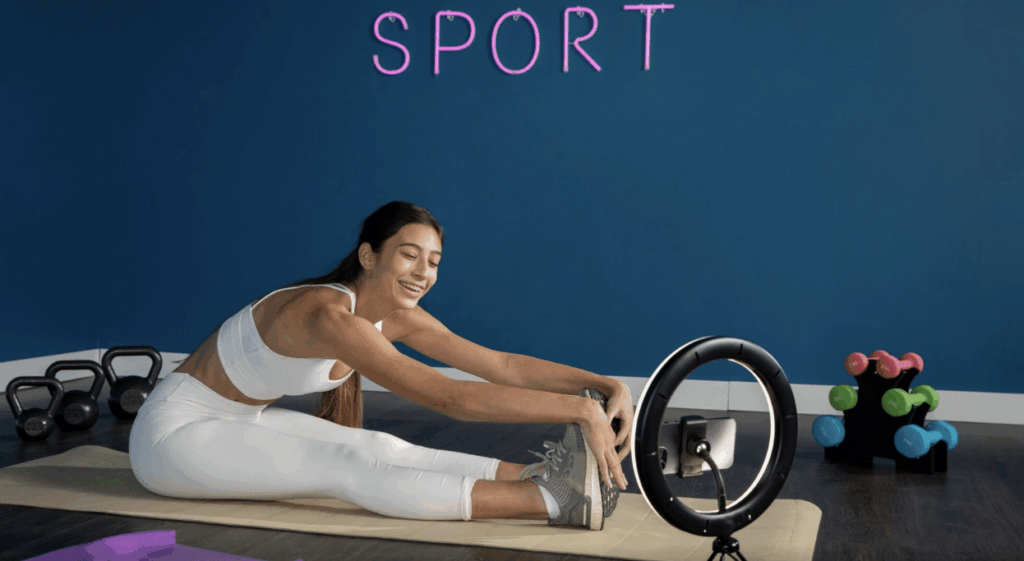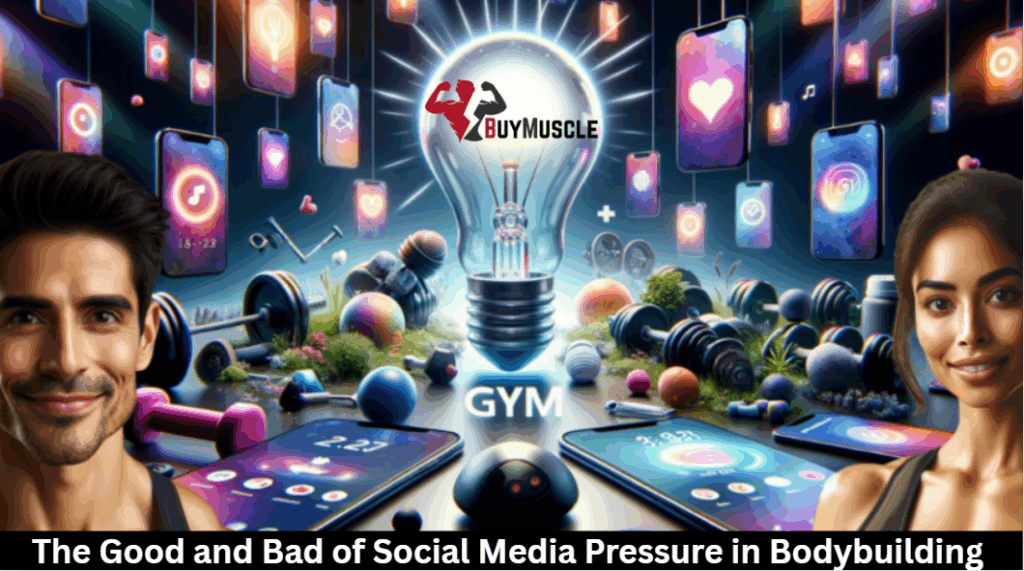Social media has revolutionized bodybuilding by democratizing fitness knowledge through free, accessible content. But access to filtered, unrealistic physiques can also cause body dysmorphia and anxiety. You’ll constantly compare yourself to edited images as you travel across the skewed line between natural and enhanced bodies.
A more authentic alternative to the algorithm-driven fitness culture is making real connections, online and offline. You define your digital fitness journey by balancing opportunity with mental health.
How Social Media Made Fitness Education Accessible
Rather than expensive magazines and personal trainers securing fitness information, social media has changed how bodybuilding knowledge pass around. Stream expert training advice, nutrition tips, and technique demonstrations right now.
With this knowledge democratization, beginners and veterans alike can learn from top athletes worldwide. Full workout breakdowns on Instagram, detailed nutrition plans on YouTube, and quick form tips on TikTok are all free.
Though social media influence comes with challenges like seeking online validation, the educational benefits are undeniable. Training motivation thrives when you can instantly connect with millions of like-minded individuals sharing valuable information that was previously available only to the privileged few.

Digital Physique Dysmorphia
The same platforms that democratized fitness knowledge have created a disturbing new phenomenon in bodybuilding culture. You’re now consuming an endless stream of filtered, edited, and often artificially enhanced physiques that distort your body image perception.
This digital environment fuels body dysmorphia as you compare yourself to physiques that don’t exist in reality. The mental health impact is severe – you begin to see normal bodies as inadequate while chasing unrealistic body standards that even the influencers themselves don’t maintain year-round.
Research shows this constant comparison leads to increased anxiety, depression, and unhealthy behaviors among bodybuilders. Your perception becomes warped by angles, lighting, and editing apps that transform already exceptional physiques into superhuman ideals impossible to achieve naturally.

Monetizing Muscle in the Digital Age
Just as social media changed the fitness landscape, bodybuilders now have unprecedented opportunities to turn their physical development into money. You are building a physique now. You create a marketable brand to attract sponsors, sell programs, and make money from content creation.
Suddenly, your image gets tied to your livelihood. This economic shift increases performance pressure. Monetization grants freedom to many athletes but also subjects their self-esteem to the validation of likes, comments, and follower counts.
Most successful bodybuilders balance commercial interests with authentic community building, realizing that sustainable income comes from real connections, not superficial trends. They realize long-term financial success requires mental health alongside physical development.
Chemical Enhancement vs. Filtered Reality
Bodybuilding’s biggest authenticity problem lies behind its perfectly lit physiques and strategically posed muscles: authenticity. The gap between chemical reality and filtered presentation. You might see images that blur the line between attainable and enhanced bodies in today’s digital culture.
What you don’t see in those perfect Instagram posts is the truth about competitive bodybuilding. Many athletes use performance enhancers while promoting “natural” lifestyles. This deception perpetuates unrealistic body standards that damage your perception of healthy achievement.
The cost of this authenticity crisis extends beyond physical health to serious mental health concerns. When you constantly consume manipulated content, you begin questioning your own progress, potentially triggering anxiety and body image issues. True fitness culture should celebrate transparent journeys rather than manufactured perfection.

Building Sustainable Communities Beyond the Algorithm
Genuine fitness connections occur when we move past algorithm constraints to build authentic communities. Finding spaces where real progress wins over perfect aesthetics reduces the need to perform for likes.
Join or start local fitness groups that replace social validation with real motivation. Such communities often shape your identity development in healthier ways. They emphasize discipline over appearance.
Engaging with people who understand your true fitness journey creates relationships that withstand algorithm changes. Most sustainable communities marry online convenience with offline accountability, giving you room to grow without constant digital judgment and comparison.
Frequently Asked Questions
How Do Family Members Support Athletes Struggling With Social Media Pressure?
You can validate your athlete’s feelings, limit screen time together, foster open conversations about body image, and emphasize their inherent worth beyond physique or online popularity. Don’t compare them to others online.
Can Older Bodybuilders Compete Effectively in Today’s Digital Landscape?
Yes, you can compete effectively as an older bodybuilder by leveraging your experience, authenticity, and wisdom to stand out. Focus on sharing valuable insights while adapting to digital platforms at your own pace.
What Recovery Strategies Help Balance Intense Training With Online Obligations?
Schedule dedicated recovery days, limit screen time, prioritize quality sleep, and practice stress-reduction techniques. You’ll need to batch content creation and set firm boundaries between your training time and social media obligations.
How Do Cultural Differences Affect Bodybuilding Social Media Engagement Worldwide?
There are regional body ideals, posing styles, and content formats. Western feeds emphasize leanness, Asian platforms emphasize technique. Middle Eastern content often demonstrates strength, and cultural values drive engagement everywhere.
Does Periodically Disconnecting From Social Media Improve Competition Performance?
Yes. Social media breaks reduce mental fatigue, help you focus on training goals, reduce comparison stress, and reconnect with intrinsic motivation for competition.







